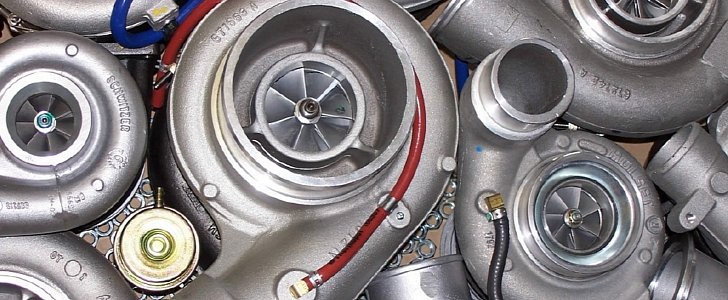Discover Sturdy and Effective Products from Engines For Africa
Discover Sturdy and Effective Products from Engines For Africa
Blog Article
Check Out a Variety of Engines for each Automobile and Purpose
The automobile landscape is significantly complicated, with a diverse selection of engine kinds developed to fulfill details performance and efficiency demands throughout numerous lorry groups. Additionally, sturdy engines serve the demands of job vehicles, while environment-friendly choices are acquiring grip in the search of sustainable transport.
Kinds of Automotive Engines
Automotive engines can be classified into numerous unique kinds, each designed to satisfy certain performance and efficiency requirements. The most usual classifications consist of inner combustion engines, electrical engines, and crossbreed systems.

Electric engines, on the other hand, operate electrical power kept in batteries, providing instant torque and no emissions. These engines are ending up being increasingly popular due to innovations in battery innovation and the growing focus on sustainability.
Hybrid systems integrate both internal combustion and electric engines, enabling automobiles to enhance fuel performance and decrease discharges by flawlessly switching in between source of power. Each engine type provides its drawbacks and advantages, influencing elements such as vehicle design, planned use, and market need. Understanding these differences is critical for consumers and makers alike when selecting the ideal engine for their particular needs.
Efficiency Engines for Sports Cars
Performance engines for cars are especially crafted to deliver boosted agility, power, and speed, establishing them besides common vehicle engines. These engines often use innovative innovations such as turbocharging, supercharging, and variable shutoff timing to optimize performance and responsiveness.
Typically, efficiency engines are developed with greater compression proportions, which permit for better energy removal from fuel. This causes outstanding horse power and torque figures, allowing fast velocity and greater top speeds. The lightweight products used in these engines, such as light weight aluminum and carbon fiber, contribute to decreased total vehicle weight, enhancing handling and maneuverability.
Engine configurations like V6, V8, and even hybrid systems prevail in performance cars, each offering special benefits in terms of power shipment and driving characteristics. The tuning of these engines is likewise essential; several suppliers enhance the engine management systems to offer an exhilarating driving experience, typically consisting of sport settings that readjust throttle response and gear shifts.
Efficient Engines for Daily Commuters
In the realm of daily commuting, efficient engines play a crucial role in optimizing fuel economy and reducing discharges while providing trustworthy efficiency. As urban populaces grow and environmental issues increase, the need for cars furnished with efficient powertrains has actually risen.
Modern engines developed for daily commuters usually integrate technologies such as turbocharging, straight gas shot, and hybrid systems. Turbocharging enhances engine performance forcibly even more air into the combustion chamber, allowing for smaller, lighter engines that do not jeopardize power outcome. Straight gas shot improves gas atomization, bring about far better burning and raised efficiency.
Hybrid engines, combining internal combustion with electric power, further increase gas economic climate, particularly in stop-and-go website traffic, where typical engines can deal with inadequacies. Electric motors help throughout acceleration and can run individually at reduced rates, reducing total fuel consumption.
Furthermore, improvements in engine management systems and lightweight materials add substantially to reliable engine design. By concentrating on performance, toughness, and environmental sustainability, producers remain to provide engines that not only meet the demands of everyday travelling however additionally straighten with worldwide initiatives to reduce carbon footprints.
Heavy-Duty Engines for Work Cars
Sturdy engines for job automobiles are regularly engineered to deliver phenomenal torque and dependability under requiring conditions. These engines are created to perform in settings where conventional engines might falter, such as building and construction sites, logging procedures, and farming setups. The primary focus of sturdy engines is their capacity to create high levels of power while maintaining toughness over expanded durations of procedure.
Typically, durable engines use advanced materials and durable building and construction techniques to endure the roughness of hefty work. Features such as reinforced cylinder blocks, boosted air conditioning systems, and progressed gas injection innovations add to their effectiveness. These engines typically operate at reduced RPMs, which aids sites to maximize fuel performance while supplying the required power for carrying and hauling.
Along with mechanical robustness, heavy-duty engines are commonly outfitted with innovative digital control systems (ECUs) that take care of efficiency, exhausts, and diagnostics. This integration enables better monitoring and maintenance, making certain that job vehicles continue to be reliable and functional.
Ultimately, sturdy engines are a crucial part in the efficiency of various sectors, providing the required power and dependability to take on the most difficult of tasks.
Eco-Friendly Engine Options
The expanding emphasis on sustainability has actually caused the growth of environment-friendly engine alternatives that prioritize minimized exhausts and enhanced fuel effectiveness. These engines are created to minimize the ecological impact of cars while still supplying the efficiency and reliability expected by customers.
Among the most noteworthy green options are hybrid and electric engines. Crossbreed engines incorporate standard interior burning engines with electric propulsion, permitting for reduced fuel usage and reduced greenhouse gas emissions. Electric engines, on the various other hand, run totally on battery power, generating no tailpipe emissions and contributing to cleaner air top quality.
Another encouraging development is the development of biofuel engines, which utilize sustainable resources, such as plant products, to power cars (Engines For Africa). By utilizing biofuels, these engines can decrease reliance on fossil gas and lower general carbon impacts

As the vehicle market evolves, eco-friendly engine options will certainly play an important role in driving the shift towards even more sustainable transportation remedies.
Conclusion
From high-performance engines that improve sports automobile capacities to efficient models prioritizing fuel economic situation for day-to-day travelers, each kind serves a certain feature. Durable engines cater to robust job vehicles, while eco-friendly alternatives, such as electrical and biofuel engines, advertise sustainable transportation.

Report this page